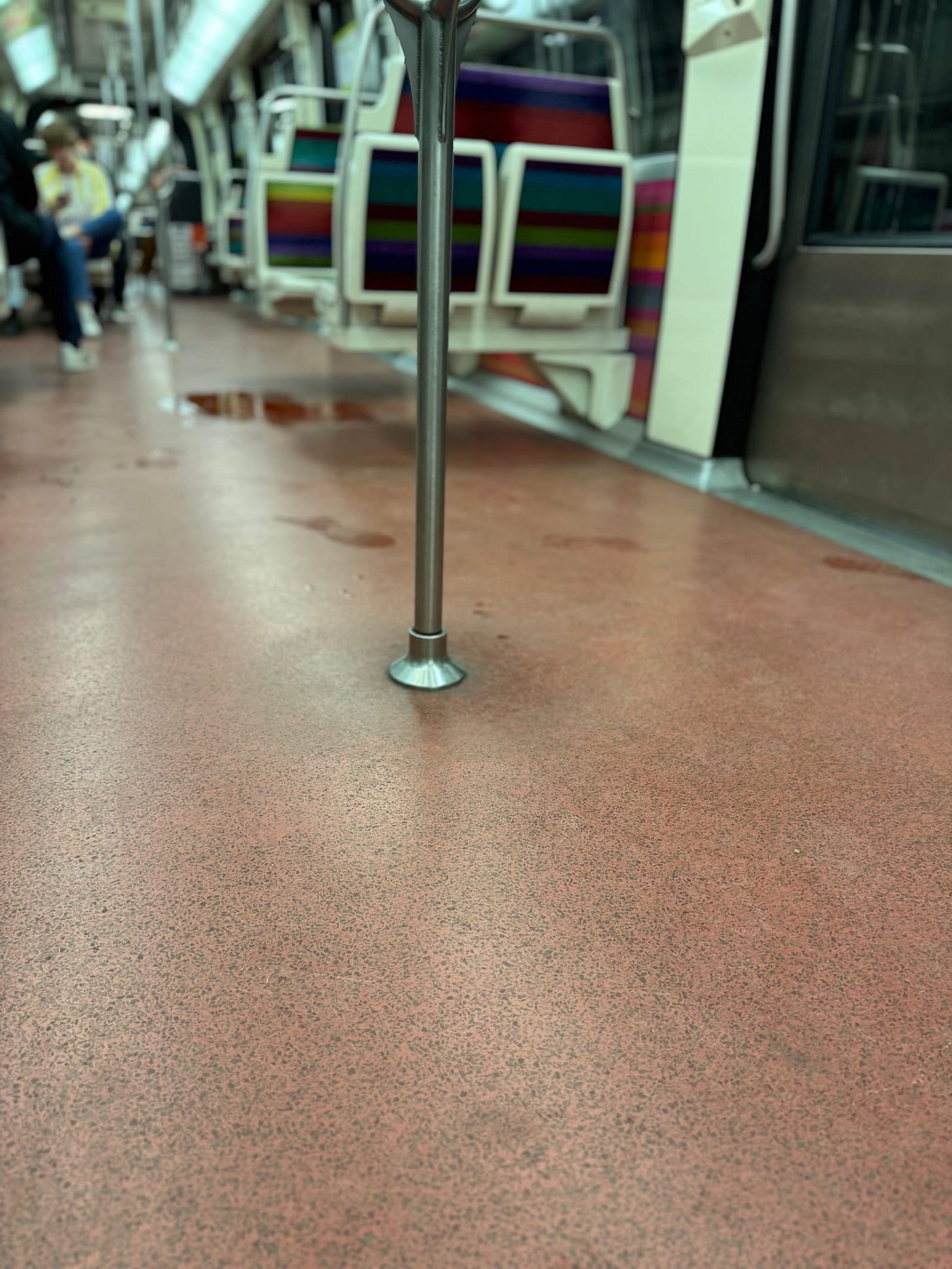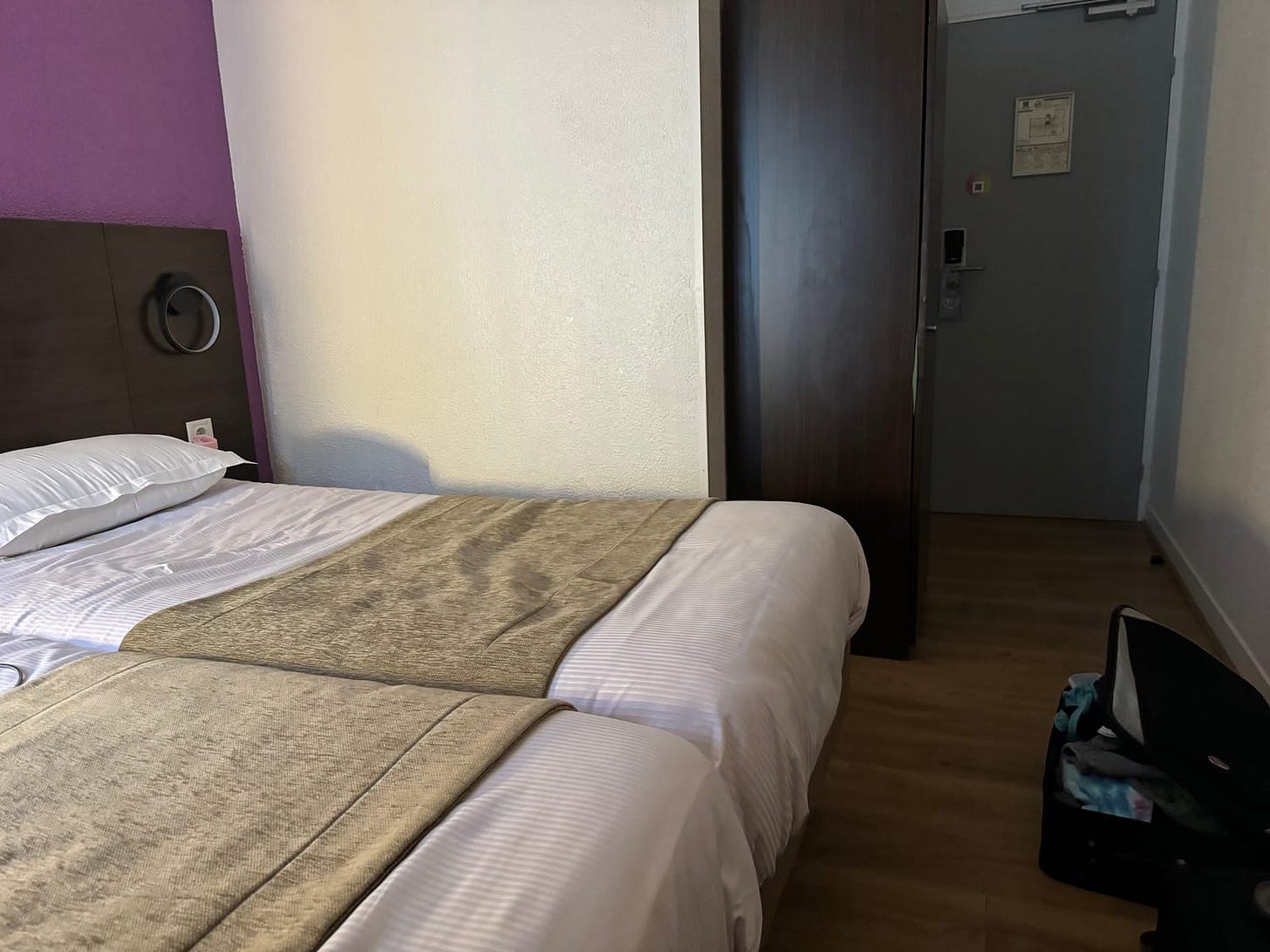There are costs and benefits to living in a country with two official languages. Perhaps, if the British parliament had opted to implement Radical Jack’s ideas, we’d have saved a ton of cash. But it didn’t and here we are. A country with two official languages.
Ottawa, being the capital of said country, is not a bilingual city. Life around here – at least in my corner of Westboro, happens mostly in English. The city has a bilingualism policy and in my experience it’s true that one can access information and services in French without too much trouble.
Except, apparently, when it comes to emergency calls. The new and much improved dispatch service for 911 calls does not take into consideration the language of the patient when deciding where to send said patient, and that’s a crying shame. I don’t blame dispatchers and paramedics – they’re doing their best with the resources they’ve got. I blame successive provincial governments for starving health care to the point where we can’t even say we’ll take language preferences into consideration whenever possible, as I wrote in the Ottawa Citizen this week. I hear there is a deal being worked on between area hospitals and paramedics to send adult francophone patients to Montfort or the General in certain situations. I don’t have any more details or anything to suggest this will actually happen, so stay tuned I guess.
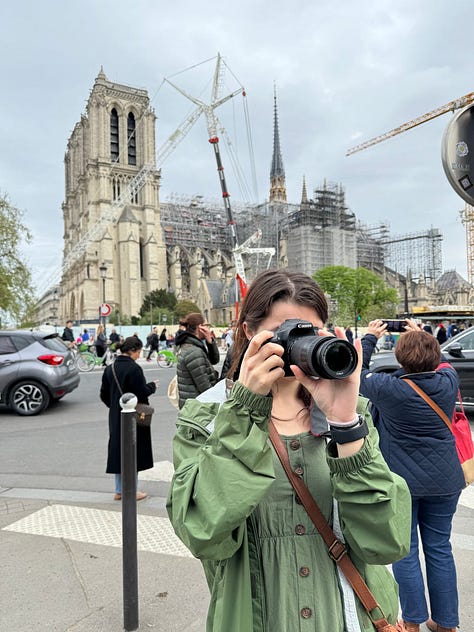
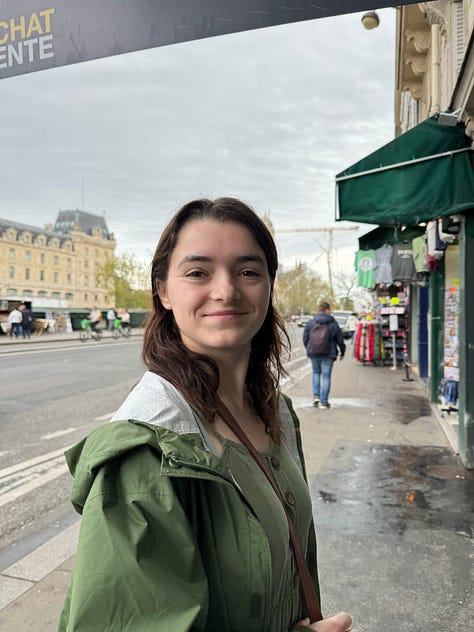
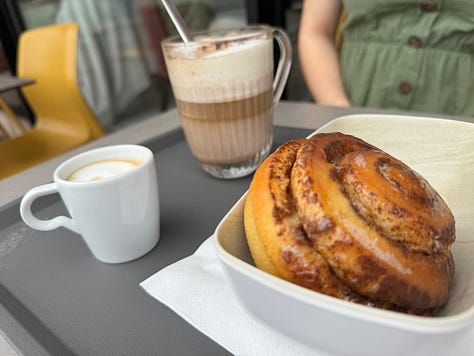
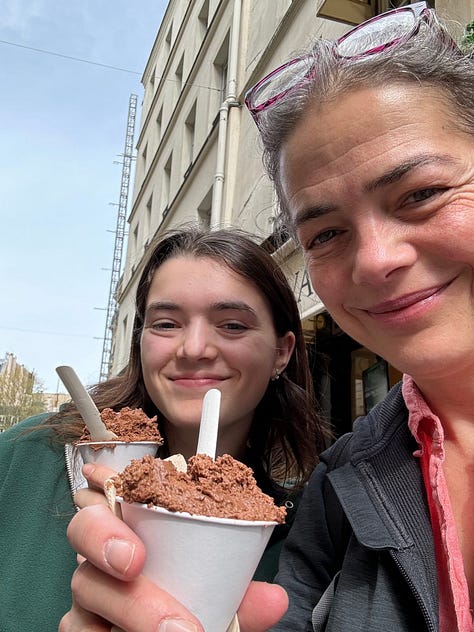
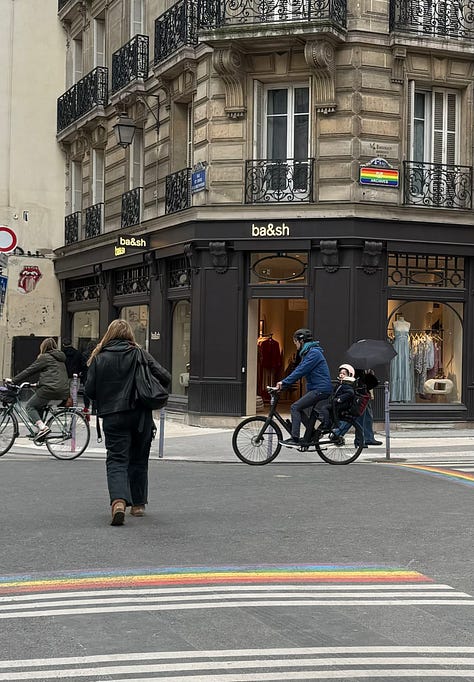
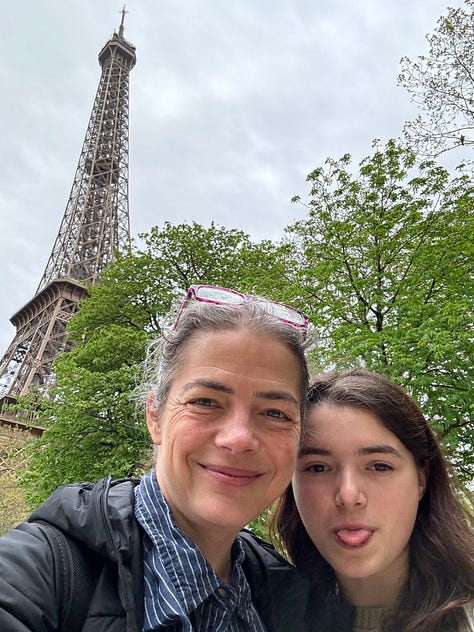
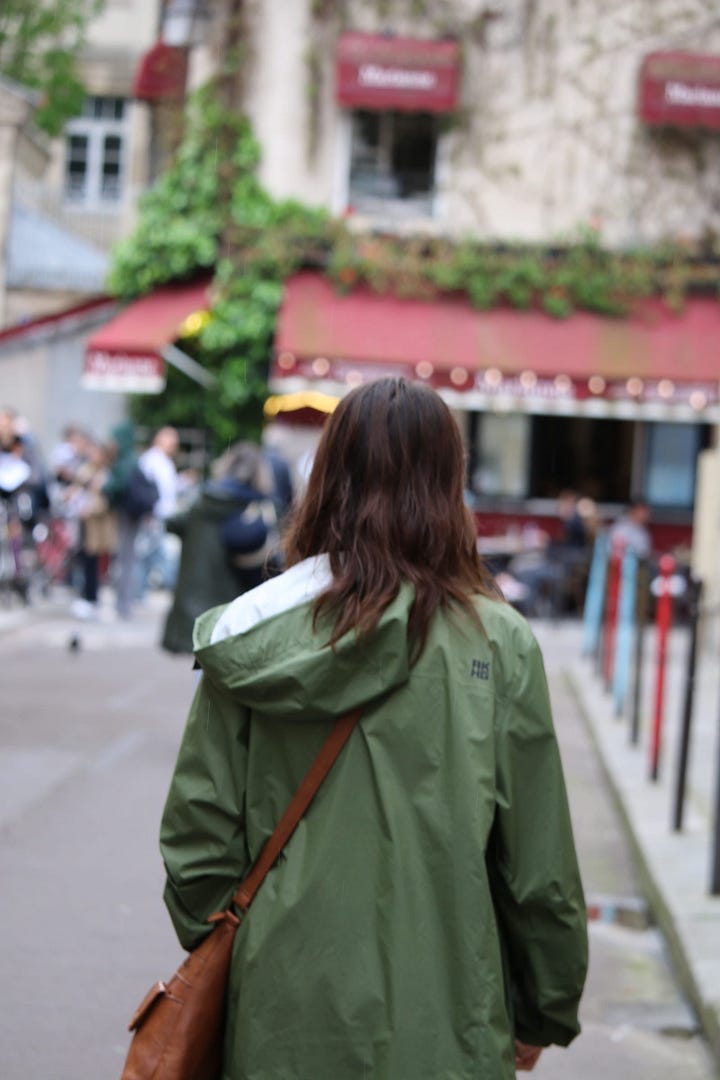

For nearly 18 years now I’ve been the kind of parent who'd rather skimp on toys and bring the kids on trips instead. Travel and life experiences always trump stuff, at least in my mind. All my kids flew somewhere before they could walk, and they got used to road trips as infants. Including that memorable one where I alone drove from Washington to Ottawa with a three-year-old, a one-year-old, and a still-nursing four-months-old. It took me two days but who cares!
Eldest, now about to graduate high school, had asked to see Paris for several years but for one reason or another there never was a good opportunity. Now that she got accepted into her university program of choice, I found a way to make it happen over an extended weekend, as a graduation present. I had a bunch of points that covered a good chunk of the airfare and I found a great deal on a comically small hotel room and – after warning her that we’d be doing it the budget-conscious way – we set off last Friday night from Montreal. We were back in Ottawa Tuesday afternoon.
I wasn’t kidding about the comically small room, by the way. Even as someone with reasonable experience doing Europe on the cheap I was surprised by the narrowness of our shower. Could not raise elbows to wash hair it was so tight. And the door only closed half-way on purpose. But hey. I don’t win Parent of the Year the easy way, do I.
We moved around using public transit. RER to and from the airport and Métro for the rest. I got us Navigo cards and daily passes. I’d used that system before but I was amazed how quickly my teen got it. And it’s not a small or simple system – it’s a maze of trains. Yet there was my teenager orienteering like a boss.
I would like to claim my kid is a travel genius but really, the ease with which she picked up transit in Paris is a wonderful tribute to that city’s system and the extraordinary employees who make it work. Nowhere throughout this system will you find the stereotypical snooty Parisian of yore who openly mocks tourists. Au contraire. The ones I interacted with on a few occasions took the time to make sure we had the right passes loaded on our cards and that we were buying the ones that suited our needs at the lowest possible price.
It’s also incredibly clean, for a system that sees so much traffic. Only once did we see a mess in a train. There’s just no litter anywhere. No smell of piss either, unlike a certain other transit system we could name.
But really, the most amazing thing about Paris is how it has transformed its streets. Last time I was there, before the pandemic, traffic was an unspeakable mess and travelling anywhere on foot was an unpleasant experience. Last week we were rendered speechless by the ease with which anyone can bike or walk anywhere. At least, anyone who doesn’t have mobility issues. Paris is still a nightmare for anyone in a wheelchair.
But as far as taming traffic and opening up countless streets for cyclists and pedestrians, the French capital – really, its mayor, the extraordinary Anne Hidalgo – has done wonders. We walked along Rue de Rivoli from Les Halles via les Tuileries to Place de la Concorde and wouldn’t you know, that iconic street’s metamorphosis from a loud and smelly car sewer to a paradise of WIDE cycling lanes is thoroughly charming. And no, it has not caused drivers to die of frustration. They still have a little bit of room and amazingly enough, at least on the day we visited, all road users moved well.
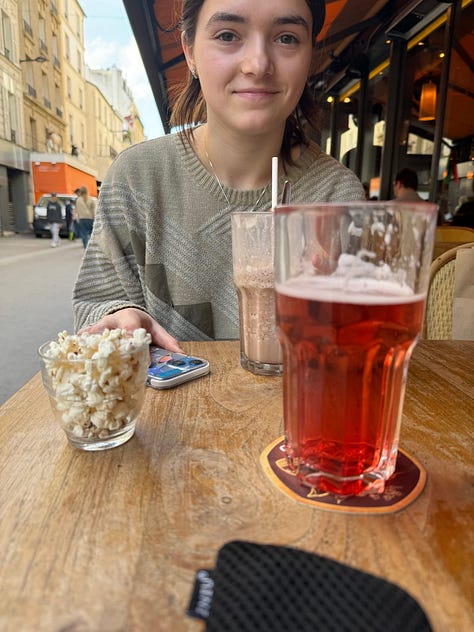
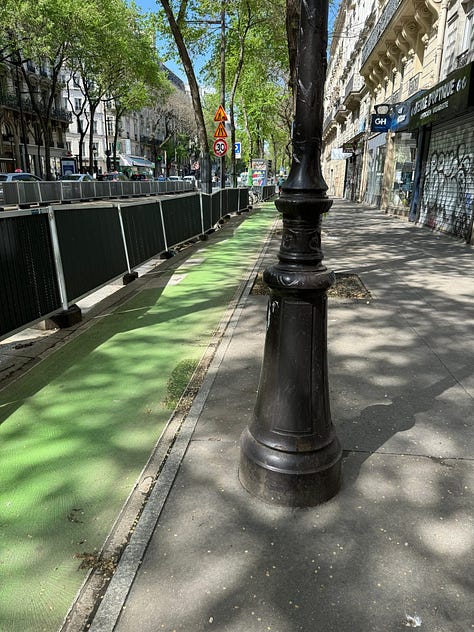
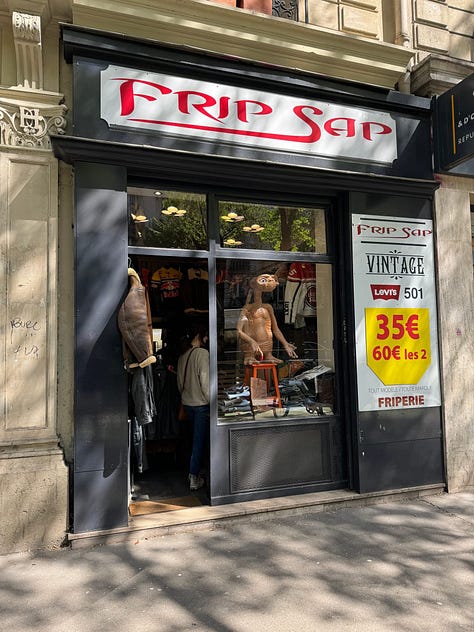
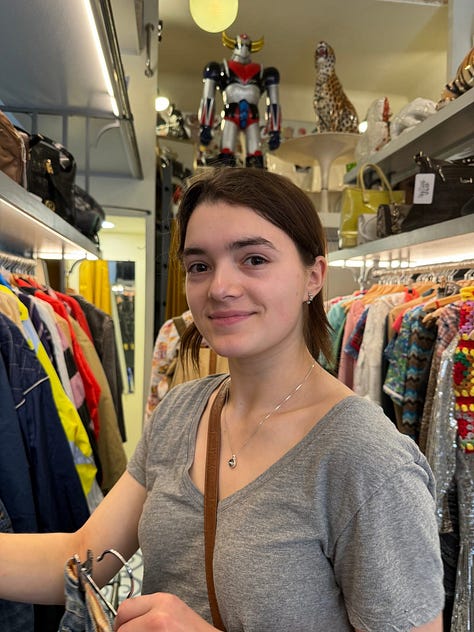
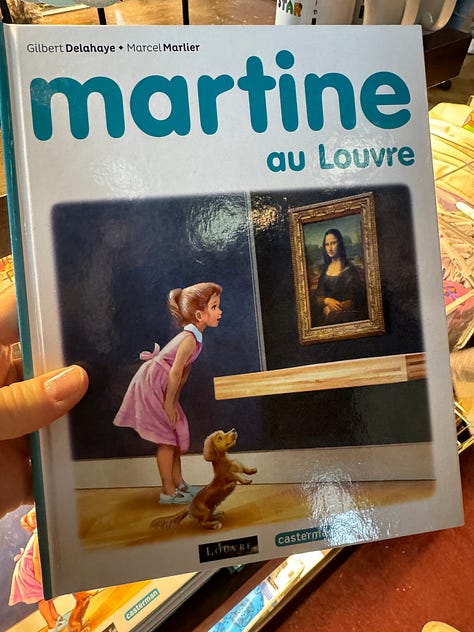

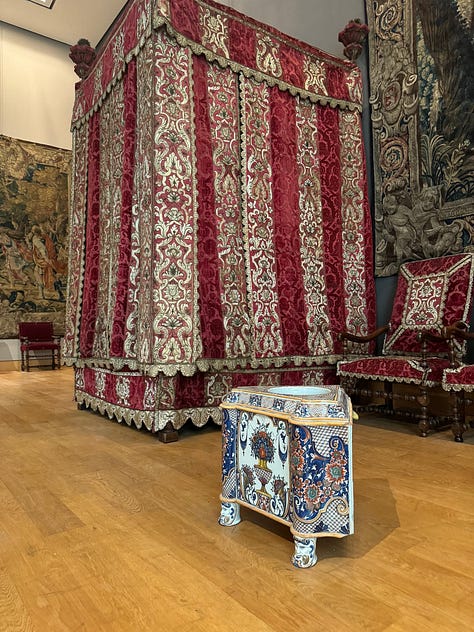
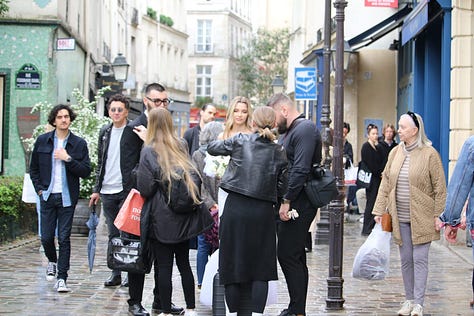
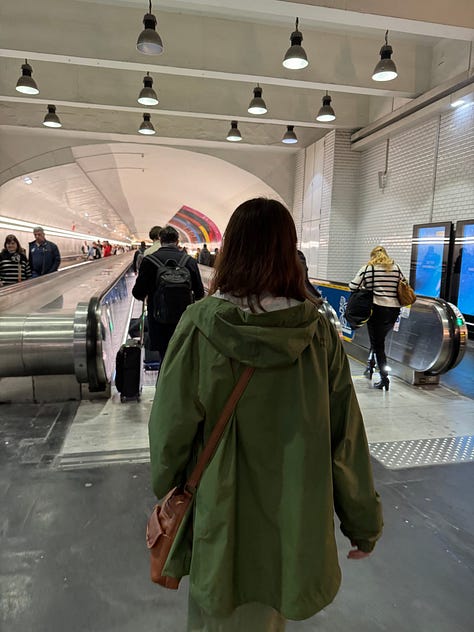
To the northeast, in the decidedly less touristy 10th arrondissement near Gare de l’Est, on Boulevard de Magenta where we deliberately went for some unforgettable thrifting experiences, they’ve added well-marked bike lanes to the sidewalk and even though part of me hates cyclists on sidewalks this system evidently works very well, as you can see in the video I took.
Our comically small but otherwise charming hotel in the also-not-touristy 14th arrondissement in Montrouge just outside Porte d’Orléans, was located in an area designed for active transportation users despite slightly heavier vehicular traffic than in the city centre. As we casually strolled to the local bakery for fresh morning pastries with which to stuff our faces, we saw plenty of young children going to school, by themselves, on nicely protected sidewalks.
A brand-new mobility study (done with the help of volunteers who agreed to be GPS-tracked) reveals that for residents of Paris and immediately surrounding areas known as la petite couronne, public transit is the #1 mode of transportation. A whopping 30% of all travel in the French capital is done by bike. Those who live in central Paris bike more than they drive.
I can hear the “but Ottawa isn’t Paris” objections from here, fear not. To that I say, Paris wasn’t always Paris either. Certainly the last time I visited, six years ago, it wasn’t like it is now. Paris changed because a municipal administration with the right kind of vision decided to plow through the same kind of objections you hear everywhere you think of restricting cars or – worse – parking. And today, when you walk around those streets that are brimming with people who actually buy things in shops and restaurants, you realize that vision was the right one indeed.
Montreal, which like Ottawa experiences winter every year, is following in similar footsteps. What’s our excuse?
Oh, right. We ain’t got none.






